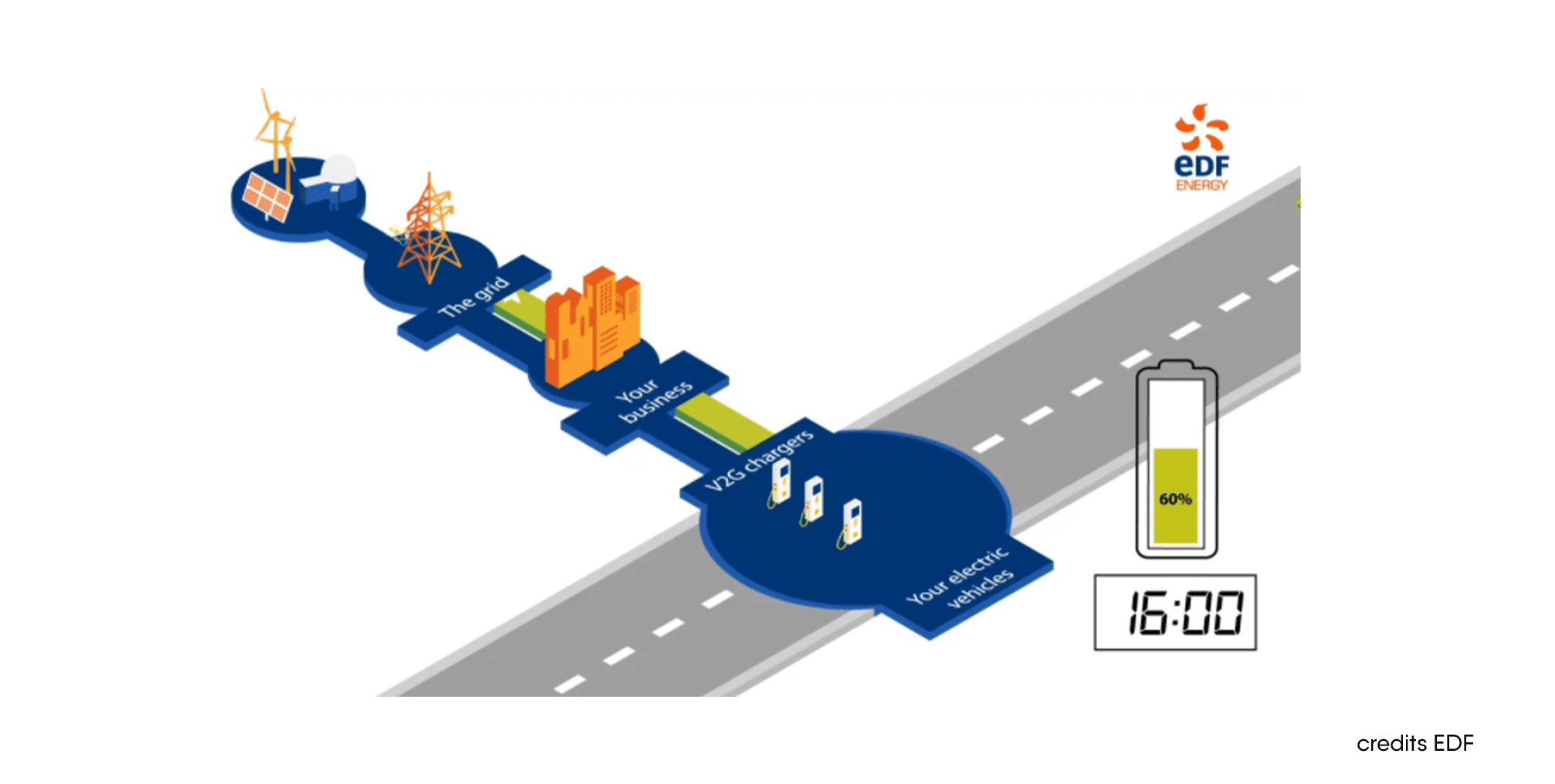Increasing value of electric vehicles for customers
EDF is taking the lead on clean mobility by allowing drivers to value the energy contained in the batteries of their electric vehicles (EVs). Currently being developed in France, the enabling suite of technologies will contribute to a wider adoption of zero-emission vehicles in Europe.

- THE TECHNOLOGY
Deploying electric mobility in Europe is greatly improving Air Quality, especially in city centres where 75% of the EU population lives.
Driving electric suppresses all greenhouse gases and particulate matters at the tailpipe. Besides the vehicle part of the equation, infrastructure must be deployed to allow seamless and efficient charging to drivers.
The Vehicle-to-Grid smart charging solution gives EV drivers the opportunity to value the battery of their vehicles, using the energy stored on board to power their homes or feeding it back into the grid. Participating to the reduction of energy demand at peak hours, storing electricity at times when wind is blowing or sun is shining to use it at night or when needed, these are examples of what this technology is enabling. Providing such flexibility will be rewarded, thus reducing the cost of driving electric for EU citizens. Combining power-related components with big data and extremely fast communication technologies is the challenge that EDF and its partners have successfully achieved. Real-site pilots are now being implemented before large-scale deployment in 2020.
- TECHNOLOGY’S FOOTPRINT IN EUROPE
Electric vehicles have the potential to reduce CO2 emissions of road transport due to light vehicles in the European Union by 37.5%, equivalent to 133 MtCO2/year by 2030, estimated with today’s EU electricity mix. Because of the already planned decrease of the CO2 content of this mix, the total emission cut will be even bigger. This remains true for other emissions, especially NOx and particulate matters, with a reduction potential equivalent of up to 66,6 ktPM/year and 666 ktNOx/year by 2030.
Creating new products and new services, smart charging and vehicle-to-grid solutions will lead to job creation which, according to Environment & Transport, could total up to 850,000 qualified jobs in Europe.
Poor Air Quality in Europe is associated to a mortality rate which is ten times higher than road accidents (365,000 deaths/year) in the European Union. Reducing air pollution in urban areas is thus of utmost importance for EU citizens and EU wealth as a whole.
- HOW DOES THIS TECHNOLOGY CONTRIBUTE TO THE EU LONG TERM DECARBONISATION OBJECTIVES
By allowing to store intermittent energy production such as renewable energy, and by combining it with the use of a car battery, smart charging technology contributes to a more important use of renewable energy (100% carbon free) to power building and clean mobility at consumer level and in line with consumer needs, while at the same time reinforcing the flexibility of the electricity grid.
It also increases the proposition value of electric vehicles, boosting its adoption and drastically reducing the emissions of the transport sector
Link to the webpage(s): https://www.edf.fr/en/strategy-cap-2030/electric-mobility-plan/smart-charging
